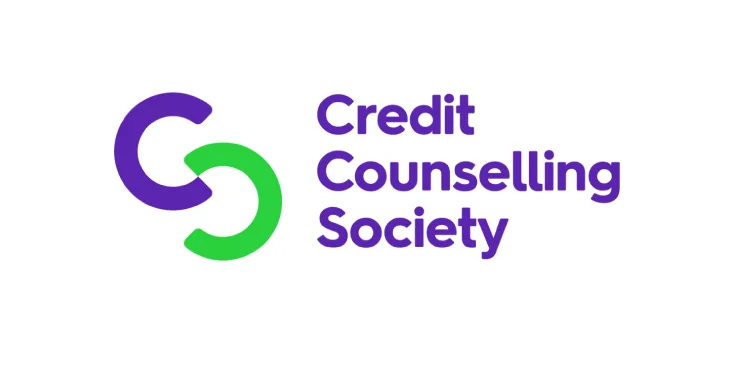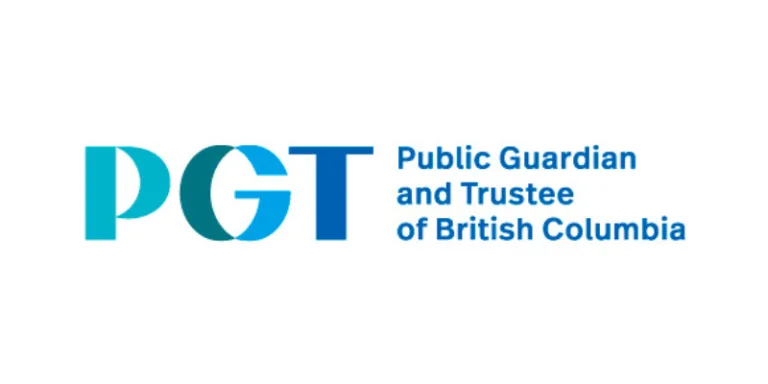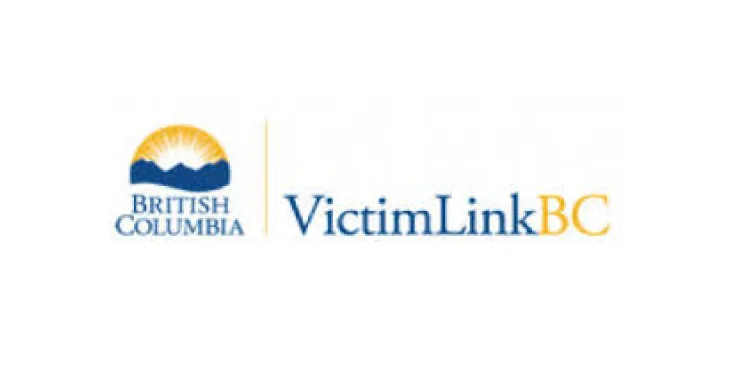
As attorney under a power of attorney, I can't be held responsible for money the adult loses because they've been scammed by someone else.
When you've been appointed as an attorney under a power of attorney, you have an important role to play in keeping the adult safe. Learn about steps you can take to protect the adult from scams, financial exploitation and abuse.
What you should know
As an attorney appointed under a power of attorney, the law says you must act honestly and in good faith. Because the adult has placed trust and confidence in you, you have a legal duty to honour that trust. This includes protecting the adult from exploitation and scams.
You must also not do anything that’s not in the adult’s best interest, such as spending their money for your benefit.
“Mom asked if I could be her attorney under a power of attorney. Now my sister is accusing me of taking advantage of Mom. Looking back, there were some red flags that Mom mightn’t have been 'all there' when she signed the power of attorney. At the time, I was just trying to help. I should have spoken to a lawyer so that they could make the assessment of her mental state at the time.”
– Leslie, Tofino, BC

The law says that an adult has to be capable to sign a power of attorney. Generally, this means that they understand the nature and consequences of making the power of attorney. When you agree to be someone else’s power of attorney, watch out for signs that they are actually capable of signing it!
To be capable of making an enduring power of attorney, the law says the adult must understand:
The obligations they owe to their dependents (such as children).
The property they own and its approximate value.
That their property may decrease in value if their attorney doesn’t manage it carefully.
That their attorney will be able to do anything with their property that they could do if they were capable, except make a will.
That you, as their attorney, might misuse your authority.
That they can revoke the enduring power of attorney while they’re mentally capable of doing so.
The adult can take away (revoke) your authority to act as their attorney at any time, as long as they understand the consequences of doing so.
If the adult revokes your authority, you must stop acting for them. Learn more about revoking a power of attorney.
If you think the adult didn’t understand their decision to remove you as their attorney, or that they were pressured by someone else to do so, read how you can deal with the problem below.
Usually, if you’re acting for someone under an enduring power of attorney, it’s because they’re unable to manage their own affairs. In this state, they’re vulnerable to exploitation. Others may take their money without permission, fail to repay money they owe, charge too much for services, or not do things the adult has paid them to do.
Beyond stranger danger
It’s not just strangers who can commit scams and financial exploitation. Family, friends, neighbours, caregivers, fiduciaries, business people, and others may try to take advantage of a vulnerable adult.
There are several reasons you should help protect the adult:
The adult is vulnerable to being exploited — whether they control their own funds, or you do.
If the adult has already been exploited, you may still be able to do something about it. See below, under work out problems, for steps you can take.
People may try to take advantage of you as the adult’s attorney.
Knowing what to look for will help you avoid doing things you shouldn’t do. This can protect you from claims that you have exploited the adult.
Signs of financial exploitation
Be alert — look for these common signs of financial exploitation:
Money or property goes missing.
Sudden changes in the adult’s spending or savings. For example, they:
try to wire large amounts of money
take out lots of money from the bank without explanation
use the ATM a lot
become unable to pay bills that are usually paid
buy things or services that don’t seem necessary
don’t get bank statements or bills
Someone new enters the adult’s life or takes on a larger role. For example, the adult:
has a caregiver, friend or relative who suddenly begins handling their money
puts a name on bank or other accounts that you don’t recognize or that they’re unable to explain
makes new or unusual gifts to family or others, such as a “new best friend”
unexpectedly changes beneficiaries of a will, life insurance or retirement funds
The adult seems afraid of a relative, caregiver or friend.
Someone seems to be controlling the adult’s decisions, keeps them from having visitors or phone calls, or doesn’t let them speak for themselves.
Learn to spot consumer scams against the adult — and against you as their attorney. Criminals and con artists also seek unsuspecting people who have access to money.
Spotting a consumer scam
Consumer scams happen on the phone, through the mail, email, or over the internet. They can occur in person, at home, or at a business. Here are some tips to help you spot a scam.
Too good to be true? Ask yourself why someone is trying so hard to give you a “great deal.” If it sounds too good to be true, it probably is!
Watch out for deals that pressure you to act or pay quickly. Be suspicious if you’re not given enough time to read a contract or get legal advice before signing.
Never pay up-front for a promised prize. Suspect a scam if you’re required to pay fees or taxes to receive a prize or benefit.
Watch out for these common scams:
| Type of scam | What it looks like |
|---|---|
| Romance or relationship scams | In a typical romance scam, someone assumes a fake identity to lure you into a relationship with them, so they can trick you out of your money. Relative scams often target vulnerable people and older adults. Someone pretending to be a family member or friend calls or emails you to say they’re in trouble and need you to wire money right away. |
| Charity and sales scams | You get a call or letter from someone asking for money for a fake charity — either the charity doesn’t exist or the person isn’t actually from the charity. |
| Prize and contest scams | You get a call or email that you have a chance to win (or have already won) a lot of money through a foreign country’s sweepstakes or lottery. |
| Home improvement or car repair | Scammers take money for repairs and then they never return to do the work or they do shoddy work. Sometimes they break something to create more work or they say things need work when they don’t. |
| Free lunch | Scammers invite you to a free lunch and seminar, and then pressure you to invest the money with them. They offer you “guaranteed returns.” |
| Free trip | Scammers say you’ve won a free trip but they ask for a credit card number or advance cash to hold the reservation. |
| Government money | You get a call or letter that seems to be from the government. Scammers say that if you give them financial information, you can apply for government help with housing, home repairs, utilities or taxes. |
| Identity theft | Scammers steal your personal information and use the information to access your finances, make purchases in your name, or commit other crimes. They may ask for your name, date of birth, social insurance number, account number or mother’s maiden name. |
| Fake “official” mail | Scammers send letters or emails that look like they are from a legitimate bank, business or from the government (such as the RCMP or Canada Revenue Agency) to try to get your personal information or bank account number. |
Take steps to avoid consumer scams
Here are steps you can take to help you and the adult avoid being the victim of a consumer scam.
After hearing a sales pitch, take time to compare prices. Ask for information in writing and read it carefully.
Don’t share numbers or passwords for the adult’s accounts, credit cards, or their social insurance number, unless you know who you’re dealing with and why they need the information.
Help the adult put their number on the National Do Not Call List. Doing so can help reduce the number of unwanted calls that they receive. You can do so:
by phoning 1-866-580-3625
by TTY device at 1-888-362-5889
Read on for more tips to spot and avoid consumer scams.
Watch for signs that the adult has already been scammed
These could be signs the adult has been the victim of a scam:
Does the adult receive a lot of mail or email for sweepstakes?
Have they paid people you don’t know, especially in other provinces or countries?
Do they have a hard time explaining how they spent their money?
Are they suddenly unable to pay for food, medicine or utilities?
If you think the adult is the victim of a scam, see the section below on how to work out the problem.
Under the law, you could be financially liable for loss or damage to the adult’s money or property if you don’t follow your legal duties as an attorney under a power of attorney. This means that a court could ask you to make up (out of your own pocket) for any money the adult loses, as the result of a scam or exploitation.
This doesn’t mean you’ll automatically be on the hook if something happens to the adult. But being alert can help protect you from claims that you’ve exploited the adult or haven’t been careful enough in managing their money.
An attorney under a power of attorney who violates their duties can even be charged with committing a crime(s).
Work out problems
Call the emergency 911 number if the adult is in immediate danger.
Advise the adult to immediately stop all communication with the person or company involved in the exploitation or scam. Take precautionary steps to ensure that this happens. This can include:
blocking phone numbers or email addresses
passing information to the Canadian Anti-fraud Centre
reporting spam to the Spam Reporting Centre
Gather any records you can find relating to the exploitation or scam — any emails or other communication, banking statements, contracts, and marketing materials (such as brochures or online ads). If the adult was financially exploited by someone they knew, talk to other family members and friends of the adult to gather more information.
Make a list of any money or information that may be lost or stolen. Write down details of any credit card information, bank account numbers, or identification that may have gone missing.
As you contact authorities, financial institutions, and other agencies, keep track of their contact details and any information you learn. This will help clear the adult’s name and re-establish their credit.
Each agency has a different role, so you may need to call more than one:
You can make a report to the Public Guardian and Trustee by completing and filing a referral form. The Public Guardian and Trustee can help to protect vulnerable adults from abuse and exploitation.
You can ask an agency designated under the law to investigate the adult’s situation. The provincial health authorities are designated agencies. The agency will investigate and offer support to the adult or take steps to protect them.
If the adult is an older adult and you have concerns that they may be a victim of abuse, you can call the Seniors Abuse and Information Line. They can offer advice, support, and possibly legal representation. See who can help, below, for additional contact details.
If the adult is in a nursing home, you can call the Patient Care Quality Office in your area.
Learn more
Read the Public Guardian and Trustee’s booklet about protecting adults from abuse, neglect and self-neglect to learn more.
If you think someone has used the adult’s credit card or accessed their bank account, immediately notify their financial institutions. Cancel any credit cards that are affected. Close or put a hold on any affected accounts.
If you think someone has stolen the adult’s identity, ask their financial institutions to investigate the identity theft. Find out if the institution requires written documentation to begin investigating. Send them any documentation they require as soon as possible.
If you suspect a scam, get help. Read up on what steps to take if you or the adult has been the victim of a scam.
If the adult suffered a loss because of a scam, fraud, or financial exploitation, report the incident to your local police department. This may be a crime that they can investigate.
If you think the adult’s identity may have been stolen, you don’t need to know the name of the person who used their identity. Show the police the unauthorized charges, debt collection letters, or other evidence that the adult is a victim of the crime.
Ask the police for a report number and record it. Include the report number in all correspondence you have relating to the incident. Banks and creditors sometimes ask for proof of a crime to erase debts created by a scam or identity theft.
You can consider taking legal action against those involved in the scam or exploitation. Generally, an attorney under a power of attorney is responsible for pursuing legal claims on the adult’s behalf.
If you don’t have a lawyer, there are options for free or low-cost legal help.
The Seniors Abuse and Information Line can offer advice, support, and possibly legal representation.
Who can help
If you think the adult (or you, in the course of managing the adult’s money) have been the victim of a scam, fraud, or exploitation, or identity theft, there are agencies you can contact for support and advice.

Credit Counselling Society
A non-profit society that supports and counsels people struggling with debt.

Public Guardian and Trustee
Can investigate the misuse of a personal planning document involving vulnerable adults.

Seniors Abuse and Information Line (SAIL)
A safe, confidential place for older adults and those who care about them to talk to someone about situations where they feel they are being abused or mistreated, or to receive information about elder abuse prevention.

VictimLink BC
A toll-free 24/7 information and support line for victims of crime in BC.

